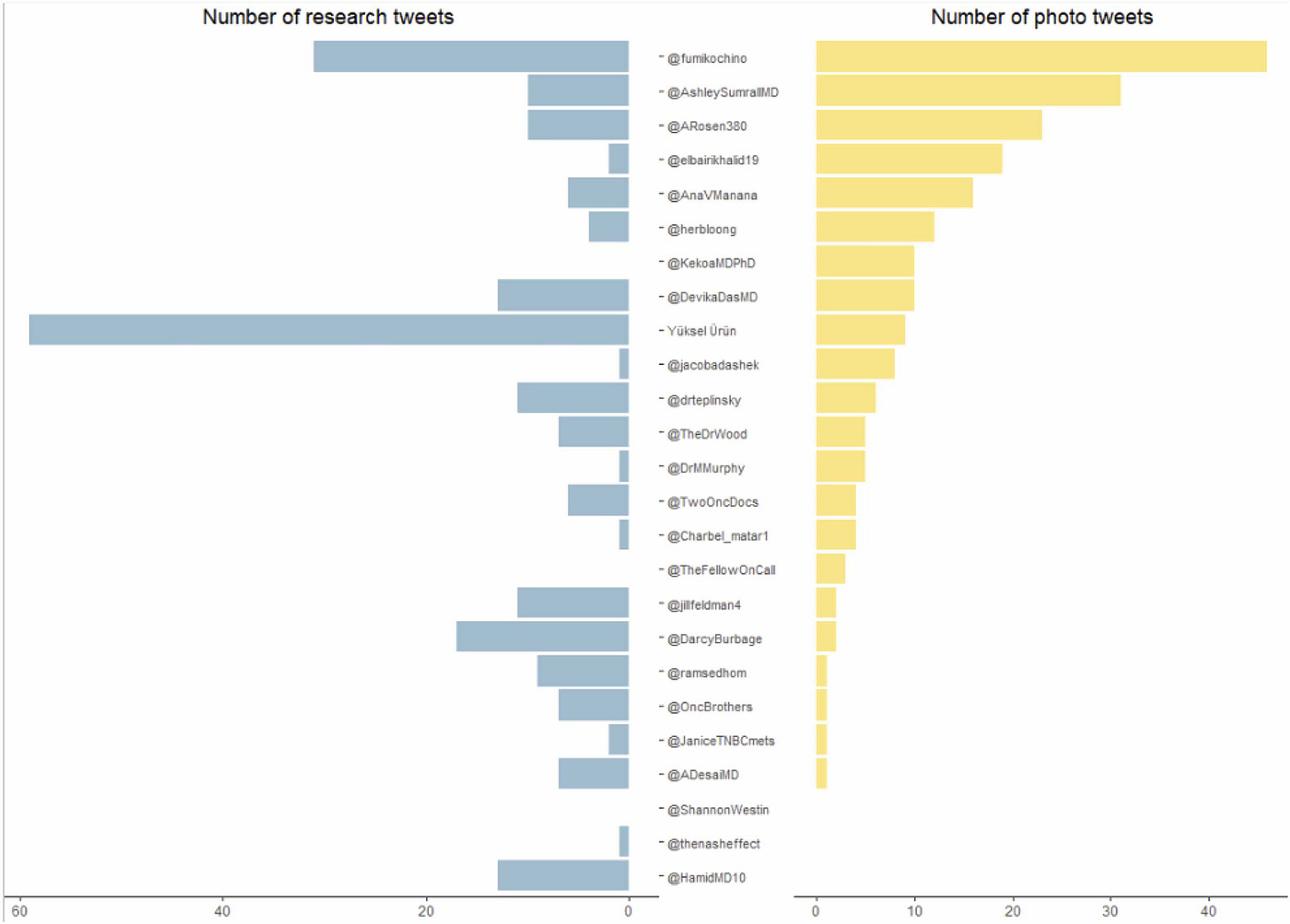Analyzing ASCO Tweets: Social Media Trends in Oncology
Our study, published in the Journal of Cancer Policy, delves into the Tweets of researchers identified by the ASCO 2024 organizers as "Featured Voices" –individuals to follow on Social Media.
The American Society of Clinical Oncology (ASCO) annual meeting is one of the world's largest medical conferences, typically held at the end of May or the beginning of June, drawing around 40,000 attendees. It is a key conference for unveiling some of the most anticipated clinical trial results, many of which have the potential to impact clinical practice and patient care.
What is the goal of ASCO Featured Voices?
A significant portion of conference discussions occurs on Twitter/X and other social media platforms. To help attendees navigate the 2024 ASCO conference, ASCO identified 25 individuals as “Featured Voices” promoting their Twitter/X handles as key references. The aim was to provide attendees with a curated list of people to follow on social media during the event. ASCO announced these Featured Voices on Instagram, Twitter/X, and LinkedIn, underscoring this intent.
Previous studies (linked here and here) have shown that many prominent oncologists who tweet have conflicts of interest. Our study's originality lies in focusing specifically on the “Featured Voices” – individuals explicitly highlighted by the conference organizers for their social media value during the event.
An in-depth analysis of Tweets from “Features Voices”
In our study out in the Journal of Cancer Policy (freely available here), we abstracted how often the Featured Voices posted about research compared to topics unrelated to research. If they did post about research, we looked at how often they were critical, neutral, or supportive of the research.
We analyzed 810 posts from the 25 Featured Voices during the timeframe of the ASCO 2024 conference and found that 229 (28.3%) were related to research. Notably, the median number of tweets per individual was 20, ranging from a minimum of 1 to a maximum of 104. This raises questions about the effectiveness of the Featured Voices selection, as some individuals barely tweeted, and others did not post a single research-related tweet.
Another important observation was that tweets discussing research largely endorsed the conclusions of the studies presented (65.3%), with criticism being relatively rare, appearing in only 9.3% of the tweets.
Given the inherent difficulty and complexity involved in interpreting oncology clinical trials, often affected by limitations, such level of criticism appears very low, while the level of support seems relatively high. In contrast, other researchers – such as Vinay Prasad, Timothée Olivier, and others – have offered more nuanced insights into many of the conference’s featured studies (see their videos before and after ASCO 2024).
While there could be several factors at play, one possible explanation for the relatively low level of criticism directed at research findings is the networking dynamic of the conference. Attendees may be reluctant to openly criticize research from individuals they know or have just met, as the social nature of the event might discourage overt negativity.
Our analysis may suggest this explanation could have been at play for the Featured Voices Tweets, as our study found that a higher proportion of tweets (34.6%) featured images – primarily of people or selfies – compared to those discussing research findings (28.3%).
This is shown in the figure.
While the conference serves an academic purpose, it also provides opportunities for networking and socializing, making some level of selfies and personal photos understandable. However, the Featured Voices have a distinct role in representing ASCO in an unofficial capacity, which suggests a potential mismatch between their professional role and the nature of some of the shared content.
We concluded: “For a conference that has a mission statement consisting of, `conquering cancer through research, education, and promotion of the highest quality, equitable patient care’, the perceived lack of publications about research and overabundance of photos shows that there is room for improvement”.
How Features Voices are selected?
The current system lacks transparency regarding the selection process for ASCO Featured Voices. Our findings indicated that some of the selected individuals rarely tweet, and most research-related posts either express praise for the research or remain neutral.
A transparent and inclusive selection process for “Featured Voices” could help amplify diverse perspectives, encourage more critical appraisal approaches, and foster richer discussions about research advancements and their implications.








good work... great to call out the group think in oncology... which is actually worse in ID (!)